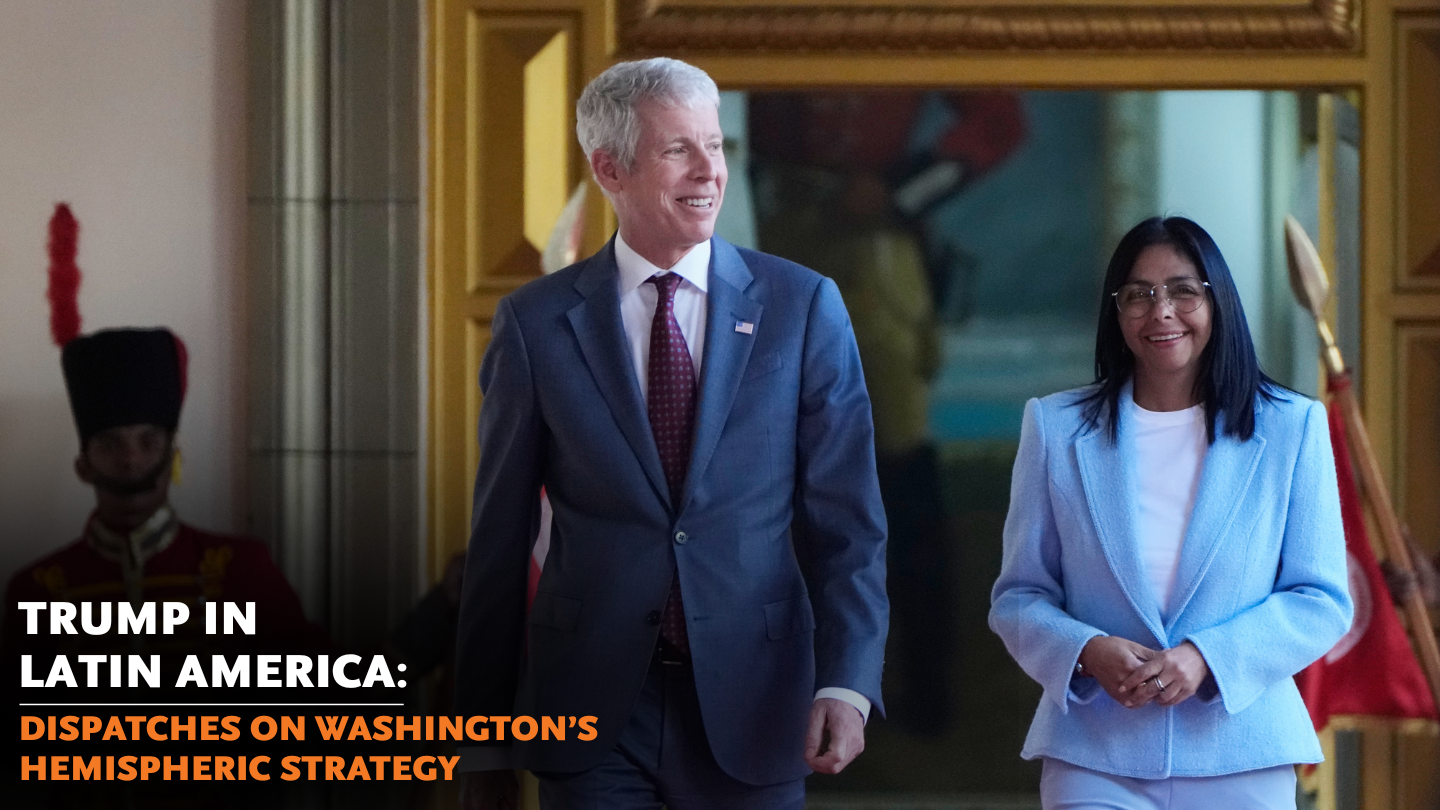The Colombia Trade Stakes
The Colombia Trade Stakes
In an op-ed, U.S. Secretary of State Condoleezza Rice urges congressional approval of a bilateral trade agreement with Colombia, emphasizing the Andean country's commitment to democracy and and the opportunity provided by the trade deal to strengthen U.S. competitiveness.
It is not every day that our government, with one bold stroke, could strengthen the competitiveness of U.S. workers; support a democratic ally on the cusp of achieving lasting national success; weaken those who would sow instability and autocracy in our hemisphere; and send an unequivocal signal to the entire world that the United States is a confident, capable global leader that acts not only in its own interest, but in the interest of its friends.
All of this is what we can gain if Congress approves the free trade agreement that our administration has negotiated with Colombia. We have had ample time for deliberation. Soon it will be time for a decision.
With courage and sacrifice, Colombians have taken their nation from the verge of failure to the brink of peace and prosperity in little more than a decade. The U.S. has been with them every step of the way. With our sustained bipartisan support, begun by President Clinton and Congress in the 1990s and expanded by President Bush and Congress since 2001, Colombia's democratic government and its people have reclaimed their country from the FARC – a narco-terrorist group that, disturbing new information suggests, has been receiving assistance from beyond Colombia's borders.
Today, as war has given way to growing security, Colombians who once fled their homes in fear are returning by the thousands. Democratic institutions and the rule of law are growing stronger and more inclusive. Unemployment and poverty are at their lowest levels in over a decade and a growing economy is creating good jobs for Colombians in their own country. In short, Colombia is becoming a normal nation again.
In February, I saw some of this progress firsthand when I visited Medellin with nine Democratic members of Congress. Once the murder capital of the world and the home of Pablo Escobar, Medellin today is a place of safer neighborhoods, thriving businesses and a palpable hope that pervades the city. Medellin is but one reflection of the brave and difficult decisions that Colombia's government is making nationwide. Passing the free trade agreement would reinforce these good decisions and enable Colombia to expand prosperity and social justice to more of its people.
Colombia's transformation to an increasingly stable and prosperous democracy is one of the world's great victories for human rights. Still, this progress has been accompanied by violent crimes, including the murder of labor leaders and other innocent people. This is unacceptable to us and it is unacceptable to President Alvaro Uribe, whose government is working to bring the guilty to justice and to protect all Colombians. Since 2002, the murder of trade unionists has fallen by nearly 80%. But as President Uribe has rightly said, when it comes to murders and crimes against innocent Colombians, his goal is "zero."
Colombia is a functioning democracy. The fact that our friend remains imperfect, and that it still faces overwhelming challenges, should lead us not to withdraw our support, but to increase it – to help Colombia's legal and democratic institutions function more accountably, more effectively and more transparently. And that is exactly what this trade agreement would do.
This agreement is also a far better deal for U.S. workers than the one they have now. At present, more than 90% of Colombian goods enter the U.S. duty-free, while our exports to Colombia face tariffs of up to 35%. This agreement would level the playing field for U.S. workers, enabling them to send the products of their labor to Colombia on the same terms that Colombians now send theirs to us. The result, according to the U.S. International Trade Commission, would be an annual increase of approximately $1.1 billion in U.S. exports to Colombia.
Beyond our economic interests, this agreement will also further our national interest in a free and peaceful hemisphere. Some in the Americas today want to shove the region toward authoritarianism. This system has failed before, and it will fail again. The only question is how much harm it will cause in the meantime, and in large part that depends on us – on whether we support the vast majority of people in the Americas today who believe, as we do, that security and social justice are best achieved through liberty and the rule of law, free and fair trade, and responsible democratic governance. Colombia shares these values, and we have invested billions of dollars in our ally's success. How could we possibly retreat now?
The fate of this agreement raises even larger questions: How does the U.S. treat its friends, especially when they are under pressure and attack? Will we remain engaged as a global leader or will we pull back unilaterally? Will we define our role in the world by confidence in our own principles or by capitulation to unfounded fears? The eyes of many nations, particularly those in our own hemisphere, are upon us, and let no one think that the choices we make will not echo around the globe.
For more than a decade, U.S. policy toward Colombia has clearly demonstrated that Republicans and Democrats can work together, elevate the national interest above partisan politics and sustain an effective strategy to achieve critical long-term goals. It is now time to write the next chapter in this venerable bipartisan story. We must approve this free trade agreement with Colombia – for the sake of both of our peoples' success.








